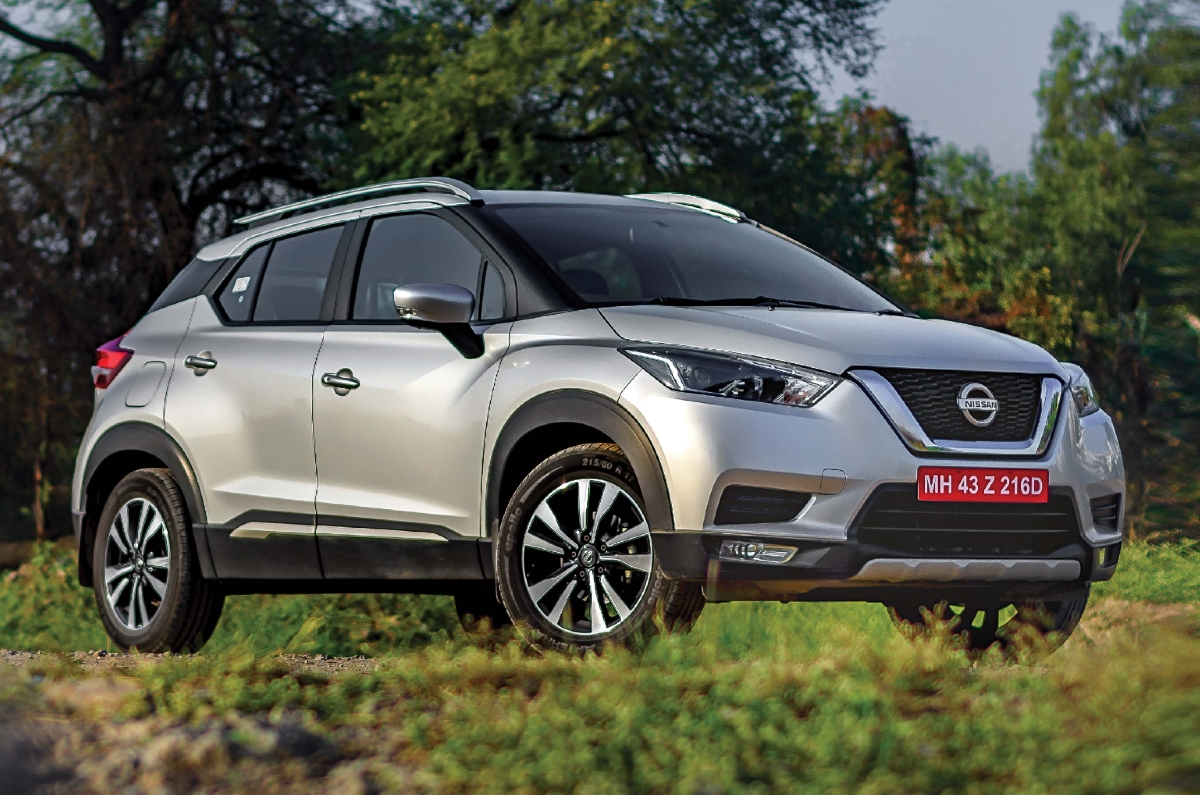
Nissan has finally introduced an auto gearbox for the Kicks, and the configuration offered is a CVT (continuously variable transmission) paired to a 1.3-litre turbo-petrol engine. At prices ranging between Rs 13.45 and 14.15 lakh (ex-showroom, India), it is available only in mid-spec variants, commanding a premium of Rs 1.50-1.60 lakh over its manual counterparts.
The 1.3-litre turbo-petrol comes with an impressive resume – it has been co-developed by the Renault-Nissan-Mitsubishi Alliance and Daimler. It even shares some of its state-of-the-art engineering with the Nissan GT-R supercar; and it produces a class-best 156hp and 254Nm of torque. And it shines in the real world too with its smoothness, linear power delivery and responsiveness. Its wide torque spread from as low as 1,600rpm and strong mid-range performance makes light work of darting into traffic gaps, cruising at highway speeds or overtaking fast moving vehicles.
The seven-step CVT complements this engine well. It is an intuitive transmission which keeps the engine spinning optimally to ensure there’s always performance available on tap. For the most part it performs its duties very smoothly; however, while slowing down to crawling speeds, it occasionally gets jerky when transitioning to its lowest step. What’s nice is that the sequential mode offers manual control – it responds well to inputs and obliges with aggressive downshifts for strong engine braking.
The Nissan Kicks CVT will leave all its rivals behind in a 0-60kph traffic light sprint (with a fair bit of torque steer). However, its Korean rivals are much quicker in a rolling race or in flat-out acceleration.
There’s a new engine stop/start feature on offer, which seamlessly switches off the engine while idling, and will restart the engine automatically when you release the brake in ‘D’. Overall, this engine is quite refined, but you can feel vibrations inside the cabin at idle when the AC compressor kicks in. Also, as the revs climb, the transmission whines a fair bit.
Because it is built on the same tough platform as the Renault Duster, the Nissan feels unfazed over the roughest of road conditions. Even at highway speeds, it remains stable and secure, and it’ll even change direction with a high degree of confidence. Its steering is lighter than the outgoing diesel’s, but it still transmits a fair bit of shocks while going over rough sections or while cornering hard.
Its exterior and interior styling are unchanged, and there’s not even a badge to distinguish this turbo version from the 1.5-litre naturally aspirated petrol that’s sold alongside. Its cabin looks neat, but the interiors don’t feel as premium as you’d expect in a car that costs over Rs 17 lakh on road. Also, being a mid-spec variant, it misses out several features, like a sunroof, auto headlamps, and side and curtain airbags, which are expected in this segment.
Despite boasting of best-in-class engine specs, the Nissan Kicks Turbo automatic’s performance isn’t particularly outstanding. And while it is cheaper than the turbo versions of its Korean rivals, it still doesn’t come across as good value for money as it lacks the overall finesse and quality of the Koreans, and also misses several features. A narrow dealer network and poor brand recall don’t help its case either.
However, if you’ve always loved the Renault Duster for its tough construction and mature driving manners, but wanted something a bit more premium and modern, the Nissan Kicks is for you. Its turbo-petrol engine is smooth, very drivable and user-friendly, and the new CVT automatic makes the Kicks easier to drive.
Also see:
Demand for Nissan Magnite soars; production to be ramped up
Nissan Magnite secures four stars in ASEAN NCAP crash tests
Comments
Post a Comment